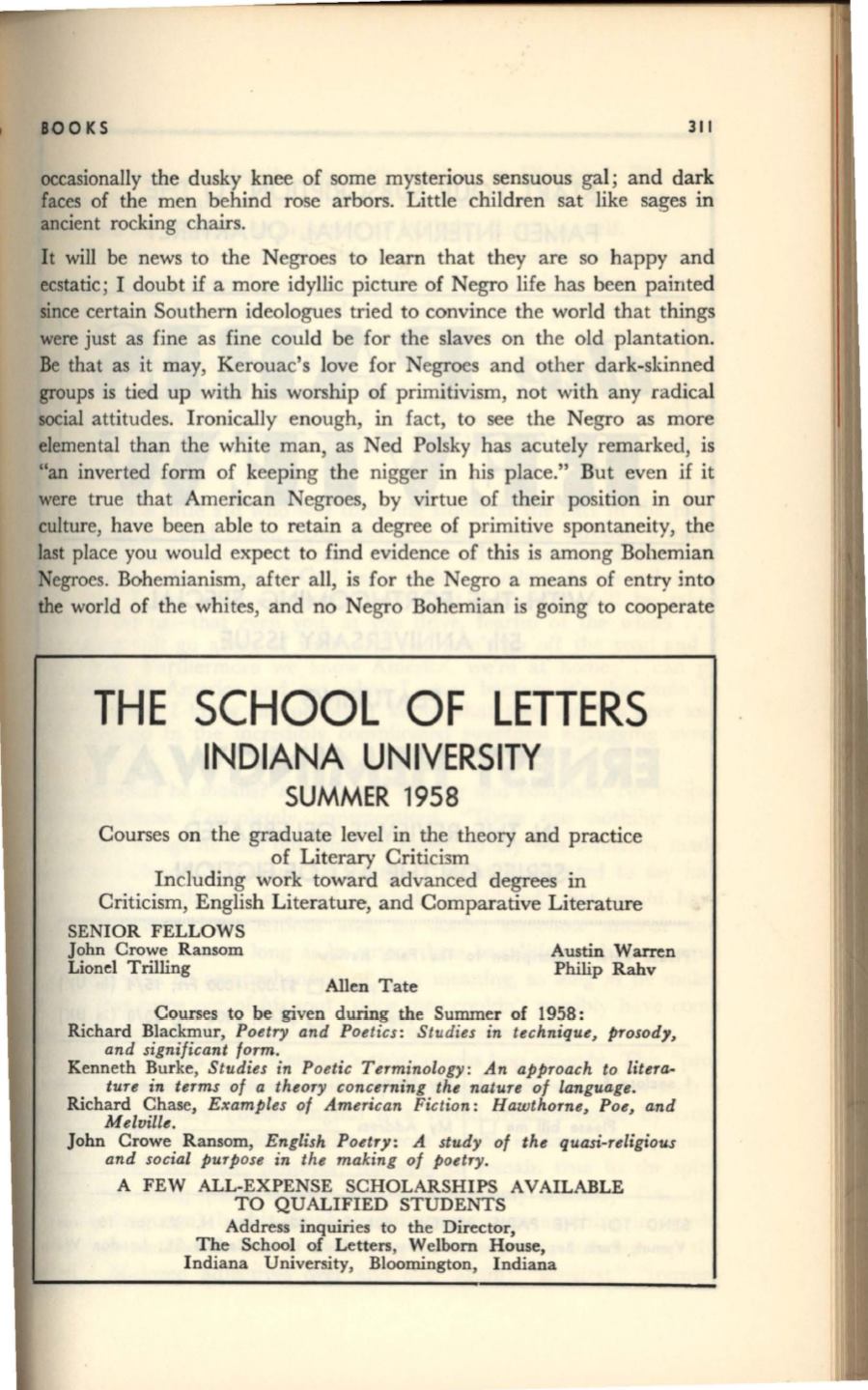
BOOKS
311
occasionally the dusky knee of some mysterious sensuous gal; and dark
faces of the men behind rose arbors. Little children sat like sages in
ancient rocking chairs.
It will be news to the Negroes to learn that they are so happy and
ecstatic; I doubt if a more idyllic picture of Negro life has been painted
since certain Southern ideologues tried to convince the world that things
were just as fine as fine could be for the slaves on the old plantation.
Be that as it may, Kerouac's love for Negroes and other dark-skinned
groups is tied up with his worship of primitivism, not with any radical
social attitudes. Ironically enough, in fact, to see the Negro
as
more
elemental than the white man, as Ned Polsky has acutely remarked, is
"an inverted form of keeping the nigger in his place." But even if it
were true that American Negroes, by virtue of their position in our
culture, have been able to retain a degree of primitive spontaneity, the
last place you would expect to find evidence of this is among Bohemian
Negroes. Bohemianism, after all, is for the Negro a means of entry
into
the world of the whites, and no Negro Bohemian is going to cooperate
THE SCHOOL OF LETTERS
INDIANA UNIVERSITY
SUMMER 1958
Courses on the graduate level in the theory and practice
of Literary Criticism
Including work toward advanced degrees in
Criticism, English Literature, and Comparative Literature
SENIOR FELLOWS
John Crowe Ransom
Lionel Trilling
Allen Tate
Austin Warren
Philip Rahv
Courses to be given during the Summer of 1958:
Richard Blackmur,
Poetry and Poetics: Studies in technique, prosody,
and significant form.
Kenneth Burke,
Studies in Poetic Terminology : An approach to litera–
ture in terms of a theory concerning the nature of language.
Richard Chase,
Examples of American Fiction : Hawthorne, Poe, and
Melville.
John Crowe Ransom,
English Poetry: A study of the quasi-religious
and social purpose in the making of poetry.
A FEW ALL-EXPENSE SCHOLARSHIPS AVAILABLE
TO QUALIFIED STUDENTS
Address inquiries to the Director,
The School of Letters, Welborn House,
Indiana University, Bloomington, Indiana
\
.


